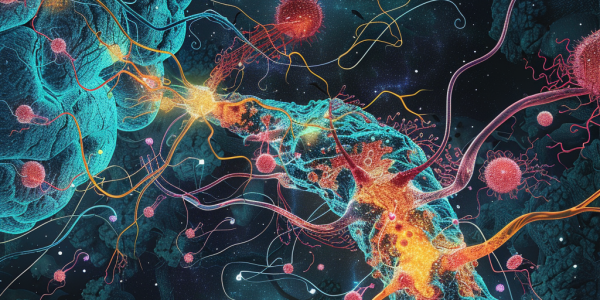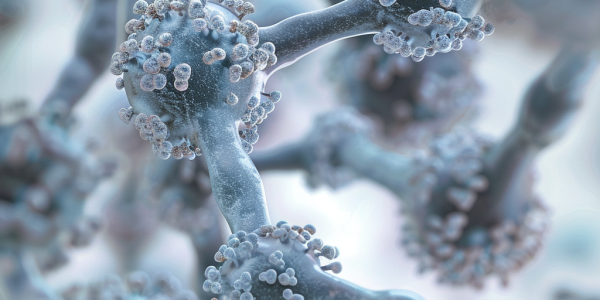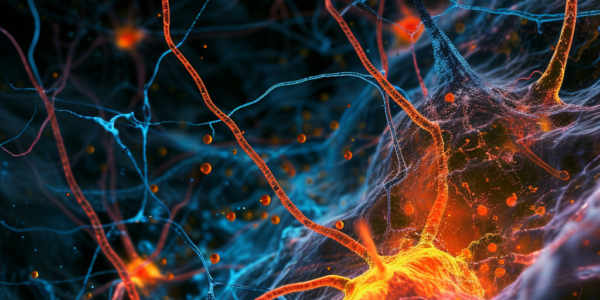Mayo Clinic Study Offers Hope for Glioblastoma Patients with Promising Survival Rates
New research from the Mayo Clinic reveals promising advancements in glioblastoma treatment, potentially extending patient survival and enhancing quality of life. A clinical trial for patients over 65 showed significant improvements in overall survival rates, with some living nearly twice as long as expected. This breakthrough underscores the importance of innovative imaging technology and personalized radiation therapy in combating this aggressive brain cancer.
New Study Reveals Glioblastoma’s Integration into Brain Circuits
Recent research from Heidelberg University reveals new insights into glioblastoma, highlighting how tumor cells integrate into brain circuits. This groundbreaking study, published in Cell, uncovers the complex interactions between aggressive brain tumors and nerve cells, paving the way for innovative therapies. Led by Dr. Varun Venkataramani, the research utilized modified rabies viruses to track glioblastoma cell behavior, emphasizing the need for ongoing studies to improve treatment outcomes for this challenging brain cancer.
Advancements in Gene and Cell Therapies for Brain Tumors Highlighted at ESGCT 2024
The 31st Annual Congress of the European Society of Gene and Cell Therapy (ESGCT) in Rome highlights groundbreaking advancements in gene and cell therapies for malignant brain tumors. Leading scientists discuss innovative treatment strategies, including personalized gene therapy and CAR T-cell therapy, aimed at improving patient outcomes. With the increasing prevalence of brain tumors, this congress emphasizes the urgent need for effective therapies and collaboration among researchers to accelerate clinical applications.
Electrical Currents Enhance NK Cell Efficacy in Cancer Treatment
A groundbreaking study published in Cell Reports Physical Science reveals that tumor treating fields (TTF) can enhance the efficacy of natural killer (NK) cells in fighting aggressive brain tumors like glioblastoma. Conducted by researchers from Trinity College Dublin and the University of Cambridge, this innovative approach shows promise in improving cancer treatment outcomes by combining electrical currents with immunotherapy. The findings suggest TTFs could serve as an effective adjunct therapy, potentially revolutionizing treatment protocols for hard-to-treat cancers.
Microsoft Outage Delays Life-Saving Surgery for Cancer Patient
A global Microsoft outage has disrupted critical medical procedures, including the life-saving brain surgery of cancer patient Chantelle Mooney. Scheduled for July 19, 2024, her craniotomy was postponed due to reliance on Microsoft technology for essential hospital systems. This incident highlights the vulnerabilities of healthcare systems that depend on a single technology provider and raises urgent questions about patient safety and operational resilience in the face of IT failures.
Man Beats Stage 4 Brain Cancer Twice: A Story of Resilience and Hope
Read about Brian Anderson’s incredible journey of beating stage 4 brain cancer twice, defying the odds and inspiring hope in Winston-Salem, North Carolina. Despite the challenges he faced, Anderson’s resilience and determination serve as a beacon of hope for all facing adversity.
Revolutionizing Cancer Treatment: Nanoparticle Breakthrough Targets Brain Metastases
Researchers at the Sylvester Comprehensive Cancer Center have created a groundbreaking nanoparticle that can penetrate the blood-brain barrier, offering new hope for treating brain metastases. Loaded with drugs targeting cancer cell mitochondria, this innovative approach shows promise in shrinking tumors and addressing primary tumors concurrently. Dr. Shanta Dhar highlights the significance of nanomedicine in cancer therapeutics, emphasizing the potential of targeted therapies to minimize harm to healthy tissues. This development represents a significant advancement in cancer treatment, opening doors for more effective and precise therapies.
7-Year-Old Diagnosed with Rare Inoperable Brain Tumor
A 7-year-old boy from the UK has been diagnosed with a rare form of inoperable brain tumor, DIPG, with a grim prognosis. His family is exploring alternative treatments and has set up a GoFundMe to support his treatment.
Young woman misdiagnosed with cancer
Read Lucy Younger’s harrowing journey of being misdiagnosed and dismissed by doctors before finally being diagnosed with a brain tumor. Despite being told she was ‘too young’ to have cancer, her persistence and advocacy for her own health ultimately led to a life-saving craniotomy.
Groundbreaking Microscopy Technique Reveals Previously Unseen Cells and Structures in Human Brain Tissue
A groundbreaking new microscopy technique developed by researchers at Massachusetts Institute of Technology (MIT) and Brigham and Women’s Hospital/Harvard Medical School has uncovered previously unseen cells and structures in human brain tissue. This innovative imaging method has the potential to…










